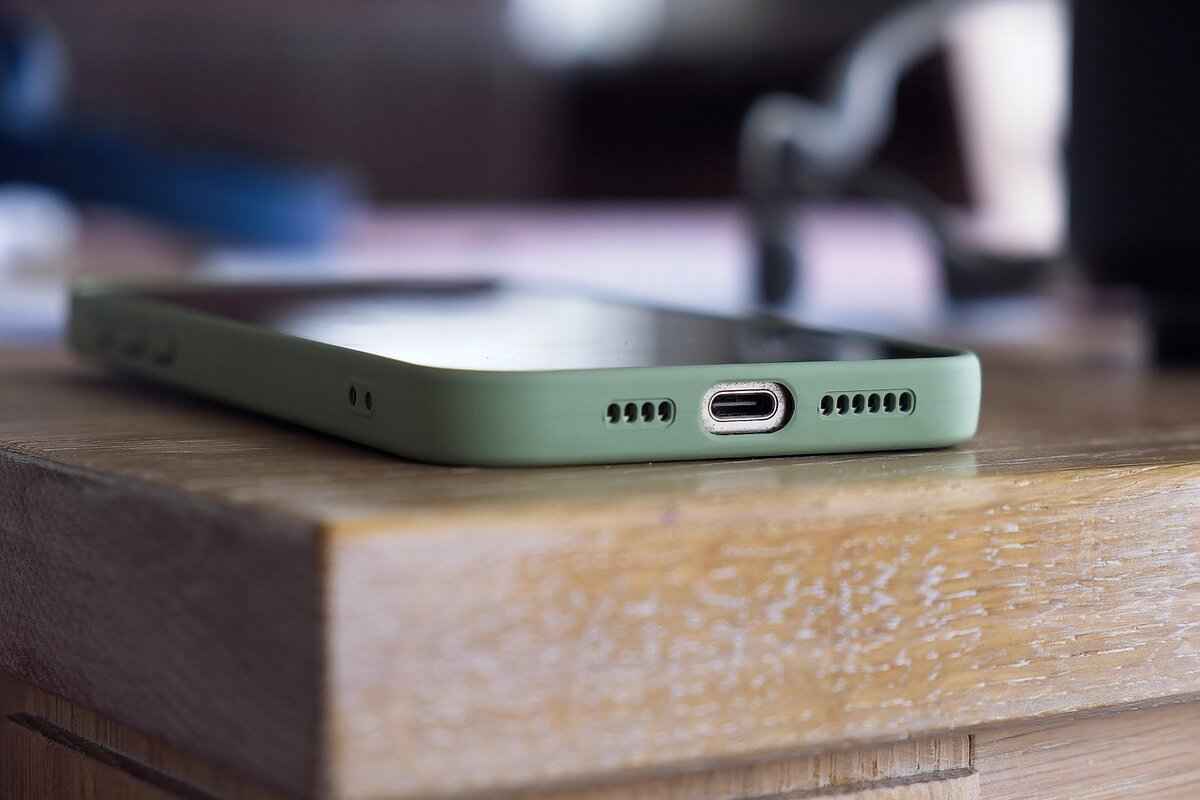This article serves as a comprehensive guide for consumers facing the challenge of addressing and canceling an incorrect phone bill. It outlines essential steps, highlights common issues, and provides expert tips to ensure a smooth resolution process.
Understanding Your Phone Bill
A thorough understanding of your phone bill is crucial for identifying inaccuracies and understanding various charges. Familiarity with billing terms such as monthly fees, taxes, and service charges can greatly enhance your ability to dispute any discrepancies effectively.
Common Reasons for Incorrect Phone Bills
Billing errors can occur for several reasons. Recognizing these common issues can empower consumers to identify discrepancies quickly:
- Billing Mistakes: These may arise from clerical errors or system faults.
- Unauthorized Charges: Charges that appear without your consent can inflate your bill significantly.
- Service Plan Misunderstandings: Misinterpretation of service plans can lead to unexpected charges.
Steps to Take When You Spot an Error
Upon noticing an error, taking systematic steps can help resolve the issue:
- Gathering Documentation: Collect previous bills, service agreements, and any relevant communication with your provider.
- Contacting Customer Service: Clearly articulate your concerns when reaching out to customer service. Prepare to explain the discrepancies in detail.
Escalating the Issue
If initial attempts to resolve the issue are unsuccessful, consider escalation:
- Requesting a Supervisor: If standard representatives are unable to assist, ask to speak with a supervisor for a more effective resolution.
- Filing a Formal Complaint: If the issue persists, you may need to file a formal complaint with the company or relevant regulatory bodies.
Monitoring Your Bill After Resolution
After resolving a billing issue, it’s crucial to monitor future bills for accuracy:
- Setting Up Alerts: Utilize technology to set up alerts for billing statements, helping you catch errors early.
- Reviewing Future Bills Regularly: Regular reviews of your bills will ensure that any new discrepancies are identified promptly.
Expert Tips for a Successful Resolution
To enhance your chances of a successful resolution, consider the following expert tips:
- Stay Calm and Professional: Maintain a calm demeanor when discussing issues with customer service representatives.
- Document Everything: Keep detailed records of all communications and transactions related to your billing dispute.
- Know Your Rights: Familiarize yourself with consumer protection laws that apply to billing disputes in your state.
By following these guidelines, you can effectively navigate the process of canceling an incorrect phone bill and ensure that your billing statements reflect the services you actually receive. Remember, being proactive and informed is key to avoiding future billing errors.

Understanding Your Phone Bill
Understanding your phone bill is essential for every consumer. A detailed examination of the components of a phone bill helps consumers identify inaccuracies and understand charges. Familiarity with billing terms is crucial for effective dispute resolution. With the increasing complexity of phone plans and services, being knowledgeable about your bill can save you both time and money.
Your phone bill typically includes several key components:
- Monthly Charges: This includes your plan fee, which is the base cost for your service, and any additional features you may have added.
- Usage Charges: Charges for additional minutes, texts, or data used beyond your plan limits. Understanding how these charges are calculated is vital.
- Taxes and Fees: Various taxes and regulatory fees can significantly increase your total bill. It’s important to know what these charges are and why they apply.
- Promotions and Discounts: If you have any promotional rates or discounts, these will also appear on your bill. Knowing when these promotions expire can help you avoid unexpected charges.
- Previous Balance: This shows any outstanding amounts from previous bills, which can affect your current balance.
When reviewing your bill, it’s crucial to look for common issues that may indicate inaccuracies:
- Billing Mistakes: These can arise from clerical errors or system faults. Regularly reviewing your bill can help you catch these mistakes early.
- Unauthorized Charges: Always check for charges that you do not recognize. These could be errors or unwanted subscriptions.
- Service Plan Misunderstandings: Ensure that you fully understand your plan’s terms and what is included. This knowledge can prevent confusion and disputes.
To effectively dispute any discrepancies, familiarize yourself with common billing terms. Here are some key terms to know:
| Term | Definition |
|---|---|
| Overage Charges | Fees incurred when usage exceeds the limits of your plan. |
| Pro-rated Charges | Charges that reflect the cost of service for a partial billing cycle. |
| Early Termination Fee (ETF) | A fee charged if you cancel your contract before the end of the term. |
Understanding these components and terms empowers you to effectively manage your phone bill. If you spot an error, gather all relevant documentation, including previous bills and service agreements, before contacting customer service. Clear communication is key in resolving disputes efficiently.
By being proactive and informed, you can ensure that your phone bill reflects the services you are actually using and avoid unnecessary charges.

Common Reasons for Incorrect Phone Bills
Understanding the common reasons behind incorrect phone bills is essential for consumers seeking to manage their expenses effectively. By identifying these issues, users can quickly address discrepancies and avoid overpaying for services. Below are some frequent causes of billing errors that consumers should be aware of:
- Billing Mistakes: These errors can occur due to clerical issues or miscommunication between departments. For example, if a customer service representative inputs incorrect information during a service change, it may lead to inflated charges.
- Unauthorized Charges: Consumers may find charges on their bills that they did not authorize. This can include fees for services not rendered or subscriptions that were never agreed upon. It is crucial to scrutinize each line item on your bill to catch these discrepancies.
- Service Plan Misunderstandings: Many consumers do not fully understand their service plans, which can lead to confusion about what charges are legitimate. For instance, exceeding data limits or international calling rates can result in unexpected charges if not clearly communicated.
Billing Mistakes
Billing mistakes can stem from various sources. Clerical errors often arise during data entry, where incorrect numbers or codes may be recorded. To mitigate these issues, consumers should regularly review their bills for accuracy. Understanding the billing cycle and terms can also help in identifying potential mistakes early on.
Unauthorized Charges
Unauthorized charges can significantly inflate a phone bill and may result from fraud or errors within the billing system. Consumers should be vigilant and report any suspicious charges immediately. Keeping a record of all communications and agreements with service providers can assist in resolving these issues effectively.
Service Plan Misunderstandings
Service plans can be complex, and misunderstandings can lead to unexpected charges. Consumers should take the time to read their service agreements thoroughly and ask questions if any terms are unclear. This proactive approach can prevent disputes and ensure that consumers are only billed for services they have agreed to.
Conclusion
By understanding these common causes of incorrect phone bills, consumers can take proactive steps to manage their accounts effectively. Regularly reviewing bills, questioning unauthorized charges, and clarifying service plan details are essential practices for avoiding billing errors. Empowering oneself with knowledge is the first step towards ensuring fair billing practices and maintaining control over personal finances.
Billing Mistakes
Billing mistakes can be a significant source of frustration for consumers, often arising from clerical errors or system faults. These mistakes can lead to inflated charges, unauthorized fees, or incorrect service plans, making it essential for consumers to regularly review their bills. By doing so, they can identify discrepancies early, ultimately saving both time and money.
Understanding the common types of billing mistakes is crucial for effective resolution. Here are some frequent issues that consumers may encounter:
- Clerical Errors: These mistakes often occur during the data entry process. For instance, a representative may accidentally input the wrong plan or service, leading to incorrect charges. Such errors can usually be resolved by contacting customer service with the necessary documentation.
- System Errors: Many companies rely on complex billing systems, and software glitches can sometimes result in erroneous charges. These issues might not be immediately apparent but can be identified through careful examination of the bill.
- Unauthorized Charges: Consumers may find charges for services they did not authorize. This can happen due to miscommunication or fraudulent activities. Identifying these charges quickly is vital to prevent further issues.
To effectively manage billing mistakes, consumers should adopt a proactive approach:
1. Review Your Bill Regularly: Schedule a set time each month to go through your phone bill in detail.2. Know Your Plan: Familiarize yourself with your service plan details and associated charges.3. Document Everything: Keep records of previous bills, service agreements, and any correspondence with your provider.
When a billing mistake is identified, the next steps are critical:
- Contact Customer Service: Reach out to your provider’s customer service department. Be prepared with your documentation and clearly articulate the issue.
- Request a Supervisor: If the initial representative cannot resolve your issue, do not hesitate to ask for a supervisor. They may have more authority to address your concerns.
- Filing a Formal Complaint: If the issue remains unresolved, consider filing a formal complaint with the company or relevant regulatory bodies. Ensure your complaint is well-documented and concise.
After resolving a billing issue, it is equally important to monitor future bills. Setting up alerts for billing statements can help catch errors early. Additionally, regularly reviewing bills ensures that any new discrepancies are identified promptly, allowing for a proactive approach to billing management.
In conclusion, understanding billing mistakes and how to address them can empower consumers to take control of their phone bills. By being vigilant and informed, individuals can effectively navigate the complexities of phone billing and avoid unnecessary charges.
Clerical Errors
Clerical errors are commonplace in various industries, including telecommunications, where they can lead to significant discrepancies in billing. Such errors typically occur during the data entry process, where incorrect information may be recorded due to simple human mistakes or miscommunication. Understanding the nature of these errors is crucial for consumers, as it empowers them to identify and rectify mistakes swiftly.
When examining a phone bill, it is essential to be aware of common clerical errors. These can include:
- Incorrect charges: This might involve being billed for services not rendered or being charged a higher rate than agreed upon.
- Duplicated charges: Sometimes, a service may be billed more than once, leading to inflated bills.
- Misapplied discounts: Promotional offers or discounts may not be applied correctly, resulting in higher charges.
To address clerical errors effectively, consumers should adopt a systematic approach:
- Review Your Bill Regularly: Familiarize yourself with your billing statement. Understanding the structure and terminology used can help you spot discrepancies quickly.
- Document Everything: Keep records of your previous bills, service agreements, and any correspondence with your service provider. This documentation will be invaluable when disputing any charges.
- Contact Customer Service: When you identify an error, reach out to your provider’s customer service. Be prepared to explain the issue clearly and provide supporting documentation.
In some cases, clerical errors can be complex and may require escalation. If initial attempts to resolve the issue do not yield results, consider the following:
- Request a Supervisor: If a customer service representative cannot assist you, politely request to speak with a supervisor who may have more authority to resolve the issue.
- File a Formal Complaint: If the matter remains unresolved, you may need to file a formal complaint with the company or a regulatory body, detailing the issue and your attempts to resolve it.
Being proactive about monitoring your phone bill after addressing clerical errors is essential. Set up alerts for billing statements to catch any future discrepancies early. Regularly reviewing future bills will help ensure that any new errors are identified promptly, preventing them from becoming recurring issues.
Understanding clerical errors and their implications can significantly enhance your ability to manage your phone bill effectively. By staying informed and vigilant, you can protect yourself from unnecessary charges and ensure that you are only paying for the services you actually receive.
System Errors
In today’s digital age, in billing can be a significant source of frustration for consumers. These errors often arise from software glitches or outdated billing systems, leading to unexpected charges and confusion. It is essential for consumers to be aware of these potential issues, as understanding them can greatly assist in identifying and disputing erroneous charges.
Many consumers may not realize that their phone bills can be affected by technical problems. Software glitches can occur due to various reasons, such as faulty updates, bugs in the billing software, or even compatibility issues with other systems. These glitches can lead to incorrect data being displayed on bills, resulting in charges that do not accurately reflect the services rendered.
Moreover, outdated billing systems can pose another challenge. Companies that fail to update their billing platforms may inadvertently carry over errors from previous billing cycles, leading to recurring mistakes. This can include miscalculations of usage, incorrect application of discounts, or failure to remove charges for services no longer used. Consumers must regularly review their bills to catch these discrepancies.
To effectively combat these issues, consumers should take a proactive approach. Here are some steps to consider:
- Review Your Bill Regularly: Familiarize yourself with your billing statement. Understanding the standard charges can help you spot anomalies quickly.
- Document Everything: Keep records of all communications with your service provider, including dates, times, and the names of representatives spoken to.
- Contact Customer Support: If you notice an error, promptly reach out to customer service. Clearly explain the issue and provide any supporting documentation.
- Escalate If Necessary: If your initial contact does not resolve the issue, don’t hesitate to escalate the matter to a supervisor or file a formal complaint.
Awareness of and their potential impact on billing can empower consumers. By being vigilant and informed, individuals can ensure that they are only charged for the services they actually use. This not only helps in disputing erroneous charges but also fosters a better relationship with service providers.
In summary, staying informed about the potential for system errors in billing is crucial for consumers. By understanding the underlying causes and taking proactive steps, individuals can effectively manage their phone bills and avoid unnecessary charges.
Unauthorized Charges
on your phone bill can be a frustrating and costly issue. These charges may stem from various sources such as third-party services, subscription fees, or even billing errors. Understanding how to identify and address these unauthorized charges is essential for maintaining control over your monthly expenses.
To effectively manage your phone bill, it’s crucial to first understand the components of your bill. Familiarize yourself with the following:
- Monthly Plan Charges: The base fee for your service plan.
- Usage Charges: Fees for additional data, calls, or texts that exceed your plan limits.
- Taxes and Fees: Government-imposed charges that vary by location.
- Third-Party Charges: Fees from external services, often added without your explicit consent.
When reviewing your bill, look for any charges that seem unfamiliar or excessive. Here are some common types of unauthorized charges to watch for:
- Premium SMS Services: Charges for text messages sent to premium numbers, often for services you did not request.
- Subscription Services: Monthly fees for apps or services that you did not subscribe to or were unaware of.
- Roaming Charges: Charges incurred while traveling outside your plan’s coverage area, which may be incorrect if you did not leave your service area.
If you identify any unauthorized charges, take the following steps to address them:
- Document Everything: Keep a record of your bill and any relevant communications with your service provider.
- Contact Customer Service: Reach out to your provider’s customer service team. Clearly explain the issue and provide documentation of the unauthorized charges.
- Request a Resolution: Politely ask for a refund or credit for the unauthorized charges. If the representative cannot assist, request to speak with a supervisor.
In cases where your provider fails to resolve the issue, consider escalating the matter:
- File a Formal Complaint: If necessary, file a complaint with the Federal Communications Commission (FCC) or your state’s public utility commission.
- Seek Legal Advice: If the issue persists, consulting with a legal expert may provide additional options for recourse.
To prevent unauthorized charges in the future, consider the following proactive measures:
- Review Bills Regularly: Make it a habit to review your phone bill every month for any discrepancies.
- Set Up Alerts: Many providers offer notification services for unusual charges or when you approach your data limit.
- Educate Yourself: Stay informed about potential scams and unauthorized services that could lead to unexpected charges.
By staying vigilant and informed, you can effectively manage your phone bill and protect yourself from unauthorized charges. Remember, your service provider is obligated to address billing disputes, so don’t hesitate to advocate for your rights as a consumer.

Steps to Take When You Spot an Error
When you receive a phone bill that appears incorrect, taking immediate action is crucial. Addressing billing discrepancies promptly can save you both time and money. Below is a detailed guide outlining the systematic steps you should follow to dispute an incorrect bill effectively.
- Gathering Documentation
- Your current bill and any previous bills for comparison
- Your service agreement or contract
- Any notes or records of previous communications with customer service
- Contacting Customer Service
- Be Clear and Concise: Clearly explain the issue you are experiencing. Use specific examples from your documentation to illustrate your points.
- Stay Calm and Polite: Maintaining a respectful tone can lead to better service. Remember, the representative is there to help you.
- Take Notes: Document the date, time, and name of the representative you speak with. Record any promises made or actions that will be taken.
- Requesting a Supervisor
- Be Direct: Politely ask to speak with a supervisor, explaining that your issue remains unresolved.
- Reiterate Your Case: Provide the supervisor with the details of your previous conversation and the documentation you have gathered.
- Filing a Formal Complaint
- Your service provider’s official complaint process
- State regulatory agencies that oversee telecommunications
- A clear description of the issue
- Documentation supporting your claim
- Details of your interactions with customer service
- Monitoring Future Bills
- Set Up Alerts: Many service providers offer the option to set up alerts for billing statements. This can help you catch errors early.
- Regular Reviews: Make it a habit to review your bills regularly to ensure accuracy and avoid future discrepancies.
Before reaching out to your service provider, it’s essential to collect all relevant documents. This includes:
Having this information on hand will not only strengthen your case but also facilitate a smoother conversation with customer service.
Once you have gathered your documentation, the next step is to contact customer service. Here are some tips to enhance your interaction:
If the customer service representative is unable to resolve your issue, do not hesitate to request to speak with a supervisor. Here’s how to approach this:
If your issue is still unresolved after speaking with a supervisor, it may be necessary to file a formal complaint. This can be done through:
When filing a complaint, include the following:
After successfully disputing an incorrect bill, it’s vital to monitor your future bills closely. Consider the following:
By following these steps, you can effectively address and dispute any errors on your phone bill, ensuring that you only pay for the services you actually received.
Gathering Documentation
When facing an issue with an incorrect phone bill, the first step is to ensure that you are adequately prepared before reaching out to customer service. is a critical part of this process, as it provides the necessary evidence to support your claims and facilitates a smoother resolution. Below are the key components to consider when assembling your documentation.
- Previous Bills: Collect copies of your past bills, particularly the ones that reflect the charges you believe are incorrect. By comparing these bills, you can identify discrepancies and establish a clear pattern of the billing errors.
- Service Agreements: Review your service agreements or contracts. These documents outline the terms of your service, including pricing, features, and any promotional offers. Having this information on hand can help you argue your case effectively.
- Communication Records: Document any communication you have had with your phone service provider. This includes emails, chat transcripts, and notes from phone conversations. Be sure to note the date, time, and the names of representatives you spoke with, as this information can be invaluable during your discussions.
- Payment History: Keep a record of your payment history, including receipts or bank statements. This can help you verify whether you have been billed correctly according to your service agreement.
Once you have gathered all relevant documentation, it is essential to organize these materials in a way that makes it easy to reference them during your conversation with customer service. Consider creating a folder—either physical or digital—where you can keep all your documents in one place.
Being prepared with comprehensive documentation not only helps you articulate your concerns more effectively but also demonstrates to the customer service representative that you are serious about resolving the issue. This can lead to a more productive interaction and increase the likelihood of a favorable outcome.
In summary, the key to addressing an incorrect phone bill lies in thorough preparation. By gathering all pertinent documentation, you arm yourself with the necessary tools to challenge any inaccuracies effectively. This proactive approach not only saves time but also enhances your chances of achieving a satisfactory resolution.
Contacting Customer Service
When it comes to resolving issues with your phone bill, effectively communicating with customer service is crucial. A well-articulated message can significantly expedite the resolution process, ensuring that your concerns are addressed promptly and accurately. Here are some essential tips for articulating your concerns clearly and assertively when contacting customer service.
- Be Prepared: Before reaching out, gather all relevant documentation, such as previous bills, service agreements, and notes from any prior communications. This preparation not only shows that you are organized but also provides the representative with the information needed to assist you efficiently.
- Stay Calm and Polite: Maintaining a calm and polite demeanor can make a significant difference in how your issue is handled. Customer service representatives are more likely to go the extra mile for customers who are respectful and patient.
- Clearly State Your Issue: Begin the conversation by clearly stating your issue. Use specific details, such as the date of the bill in question and the exact charges that you believe are incorrect. For example, you might say, “I noticed an unauthorized charge of $50 on my bill dated March 1st, and I would like to dispute it.”
- Use Assertive Language: Assertive communication is key to ensuring that your concerns are taken seriously. Avoid passive language; instead of saying, “I think there might be a mistake,” say, “I believe there is a mistake.” This approach conveys confidence and clarity.
- Ask Questions: Don’t hesitate to ask questions about your bill or the charges you are disputing. Questions like “Can you explain why I was charged this amount?” or “What steps will you take to resolve this issue?” can provide you with valuable information and demonstrate your engagement in the process.
- Request a Resolution: Clearly articulate what you would like to see happen. Whether it’s a refund, correction of the bill, or a change in service, stating your desired outcome helps the representative understand how to assist you better.
- Take Notes: During the call, take notes of what the representative says, including their name, the date, and any reference numbers provided. This documentation can be useful for follow-up calls or if you need to escalate the issue.
- Follow Up: If the issue is not resolved during your initial contact, make sure to follow up. Reference your previous conversation and any notes you took to reinforce your case. Persistence can often lead to quicker resolutions.
- Escalate If Necessary: If you feel that your concerns are not being addressed adequately, do not hesitate to ask to speak with a supervisor. A higher authority may have more resources and authority to resolve your issue.
By following these tips, you can enhance your communication with customer service representatives and increase the likelihood of a swift resolution to your billing disputes. Remember, the goal is to articulate your concerns clearly and assertively while maintaining a respectful tone. This approach not only fosters a positive interaction but also helps you achieve the outcome you desire.

Escalating the Issue
When initial attempts to resolve a billing dispute prove ineffective, it may become necessary to escalate the issue. Understanding the escalation process is crucial for consumers who wish to ensure their concerns are addressed adequately. This section will guide you through the steps to escalate billing disputes effectively, ensuring you are well-prepared for each phase of the process.
Recognizing the Need for Escalation
Before deciding to escalate, it is essential to determine whether the issue genuinely requires higher-level intervention. Common indicators include:
- Unresolved Issues: If customer service representatives cannot provide a satisfactory solution after multiple interactions.
- Repeated Errors: If the same billing error occurs consistently, indicating a systemic issue.
- Lack of Communication: If you experience delays in responses or unhelpful interactions with customer service.
Requesting a Supervisor
One of the first steps in escalation is to request to speak with a supervisor or manager. Here are some tips for this approach:
- Be Polite but Firm: Clearly express your desire to speak with a supervisor due to the unresolved nature of your issue.
- Document Conversations: Keep a record of your interactions, including names, dates, and the details discussed, to present a clear history of your efforts.
- State Your Case Clearly: When you reach a supervisor, summarize your issue concisely and mention previous attempts to resolve it.
Filing a Formal Complaint
If escalating to a supervisor does not yield results, you may need to file a formal complaint. This process typically involves:
- Identifying the Right Channels: Research the appropriate department or regulatory body for filing complaints related to billing disputes.
- Providing Comprehensive Details: Include all relevant information, such as your account number, a detailed description of the issue, and any supporting documentation.
- Following Up: After submitting your complaint, make sure to follow up regularly to check on its status and ensure it is being addressed.
Utilizing Consumer Protection Agencies
If internal escalation efforts fail, consider reaching out to consumer protection agencies. These organizations can provide additional support and may intervene on your behalf. Some well-known agencies include:
- The Federal Communications Commission (FCC): This agency oversees communication-related issues and can assist with billing disputes.
- The Better Business Bureau (BBB): Filing a complaint with the BBB can prompt a response from the company seeking to maintain its reputation.
Keeping Records
Throughout the escalation process, maintaining thorough records is vital. Document all interactions, including dates, times, and the names of representatives you spoke with. This information will be invaluable if further action is required, such as legal proceedings.
Final Thoughts
Escalating a billing dispute can be a daunting task, but understanding the process and knowing your rights can empower you to advocate for yourself effectively. Always remain persistent and assertive in your communications, as a well-documented case can significantly increase your chances of a favorable resolution.
Requesting a Supervisor
can be a crucial step when dealing with unresolved issues related to your phone bill. When standard customer service representatives are unable to assist, escalating your concern to a supervisor may lead to a quicker resolution. This section outlines effective strategies for approaching this step, ensuring that you communicate your needs clearly and assertively.
First and foremost, it is essential to remain calm and collected when speaking with customer service. Emotions can run high when dealing with billing discrepancies, but maintaining a professional demeanor will help facilitate a more productive conversation. Here are some key strategies to keep in mind:
- Know Your Facts: Before requesting to speak with a supervisor, ensure you have all relevant information at hand. This includes your account number, details of the disputed charges, and any previous communication you’ve had with customer service representatives.
- Be Direct: When you feel that your issue is not being resolved, politely but firmly ask to speak with a supervisor. You might say, “I appreciate your assistance, but I would like to escalate this matter to a supervisor for further review.”
- Explain Your Situation: Once connected to a supervisor, clearly explain the issue you are facing. Provide a brief overview of your previous interactions and specify what resolution you are seeking. This clarity will assist the supervisor in understanding your situation quickly.
- Stay Persistent: If the supervisor is unable to resolve your issue immediately, do not hesitate to ask what the next steps are. Request a timeline for when you can expect a follow-up, and make sure to obtain their contact information for future reference.
It is also beneficial to document your interactions. Keeping a record of the names of representatives you speak with, the dates and times of your calls, and the content of the conversations can be invaluable if further escalation is needed. If the issue continues to be unresolved even after speaking with a supervisor, consider the following steps:
- Filing a Formal Complaint: If your concerns are still not addressed, it may be necessary to file a formal complaint with the company’s customer service department. Outline your issue in detail and include any supporting documentation.
- Contacting Regulatory Bodies: If the situation remains unresolved after exhausting all internal options, you may want to reach out to regulatory agencies that oversee telecommunications. In the United States, the Federal Communications Commission (FCC) can be a valuable resource.
In summary, requesting a supervisor is a powerful tool in ensuring your billing issues are resolved efficiently. By approaching the situation with preparation, clarity, and persistence, you increase your chances of achieving a favorable outcome. Remember, you are entitled to fair treatment and accurate billing, and taking these steps can help you advocate for your rights as a consumer.
Filing a Formal Complaint
is often a crucial step in resolving billing disputes that have not been adequately addressed through initial customer service interactions. If you find yourself in a situation where your phone bill remains incorrect despite your efforts to rectify the issue, it may be time to escalate your concerns. This section provides a detailed guide on the process of filing a formal complaint, including what to include and the best practices to follow.
Before diving into the complaint process, it’s essential to understand that a formal complaint is not just a simple email or phone call. It is a structured document that outlines your grievances clearly and formally. Here’s how to go about it:
- Gather Evidence: Collect all relevant documents that support your case. This includes copies of your phone bills, any correspondence with customer service, service agreements, and notes from your conversations with representatives.
- Write a Clear and Concise Complaint: Begin your complaint by stating your name, contact information, and account number. Clearly describe the issue, including dates and amounts involved. Be specific about the discrepancies and reference any previous attempts to resolve the issue.
- State Your Desired Outcome: Indicate what resolution you are seeking. Whether it’s a correction to your bill, a refund, or an explanation of charges, make sure your expectations are clear.
- Include Relevant Dates: Mention key dates related to the billing issue, including when you first noticed the error and when you contacted customer service.
- Be Professional and Polite: Maintain a respectful tone throughout your complaint. Avoid using aggressive language, as it may hinder your chances of a favorable resolution.
Once your complaint is drafted, you can submit it through various channels. Many companies have dedicated complaint departments or online forms. If you choose to send a physical letter, consider using certified mail to ensure it is received. Keep a copy of your complaint for your records.
If your complaint is directed at a regulatory body, such as the Federal Communications Commission (FCC), ensure that you follow their specific guidelines for filing complaints. This often involves filling out an online form that provides essential details about your issue.
After submitting your complaint, it’s advisable to follow up. If you do not receive a response within a reasonable timeframe, contact the company or regulatory body again to inquire about the status of your complaint. Keeping records of all communications is vital, as it will help you track the progress of your case.
In some instances, if the company fails to respond appropriately to your formal complaint, you may consider escalating the matter further. This could involve seeking assistance from consumer protection agencies or legal counsel, depending on the severity of the issue.
Filing a formal complaint can be a daunting process, but being organized and thorough can significantly enhance your chances of achieving a satisfactory resolution. Remember, you have the right to dispute incorrect charges and seek justice in billing matters.

Monitoring Your Bill After Resolution
After successfully resolving a billing issue, it is crucial to monitor your future bills for accuracy. This vigilance not only helps prevent recurring errors but also ensures that you are not overpaying for services you did not use or authorize. In this section, we will discuss the importance of being proactive in reviewing your phone bills and provide practical strategies to help you stay on top of your billing statements.
Many consumers may feel relieved after addressing a billing discrepancy, but that relief can quickly turn to frustration if similar issues arise in subsequent months. By implementing a few simple practices, you can significantly reduce the chances of encountering billing errors in the future.
- Set Up Alerts: Many service providers offer the option to set up alerts for billing statements. This feature can notify you when your bill is ready to view, allowing you to review it promptly. Additionally, consider setting reminders for due dates to avoid late fees.
- Review Bills Regularly: Make it a habit to review your bills as soon as they arrive. Look for any unfamiliar charges, changes in service plans, or discrepancies in usage. By catching these errors early, you can address them before they escalate.
- Understand Your Plan: Familiarize yourself with the specifics of your service plan, including any promotional rates or discounts. This knowledge will empower you to spot inaccuracies more easily.
- Keep Documentation Handy: Maintain a record of previous bills, service agreements, and communications with your provider. This documentation can be invaluable if you need to dispute a charge.
In addition to these practices, consider utilizing technology to assist in managing your bills. Many apps and online tools can help you track expenses and remind you of upcoming payments. By leveraging these resources, you can create a more organized approach to monitoring your billing.
Moreover, if you notice a recurring issue, don’t hesitate to reach out to your service provider. Document your findings and present them clearly when communicating with customer service representatives. A well-informed customer is often taken more seriously, and your chances of resolving the issue quickly will increase.
Ultimately, being vigilant about your billing statements is a form of financial self-defense. By taking these proactive steps, you can protect yourself from potential billing errors and ensure that your phone bill accurately reflects your usage and service agreements. This diligence not only saves you money but also contributes to a more positive relationship with your service provider.
In summary, monitoring your bill after resolving a billing issue is essential for preventing future errors. By setting up alerts, reviewing bills regularly, understanding your plan, and keeping documentation handy, you can significantly reduce the likelihood of encountering discrepancies. Embrace these strategies to maintain control over your phone expenses and ensure that you are only paying for the services you have agreed to.
Setting Up Alerts
In today’s fast-paced world, managing your phone bill effectively is crucial for avoiding unnecessary charges and ensuring accurate billing. One of the most effective strategies for achieving this is by for billing statements. These alerts can serve as a powerful tool for consumers, allowing them to catch errors early and manage their finances more efficiently.
Benefits of Setting Up Alerts
- Early Detection of Errors: Setting up alerts enables you to receive notifications as soon as your billing statement is available. This immediate access allows you to review charges promptly, making it easier to spot any discrepancies or unauthorized charges.
- Budget Management: Alerts can help you stay on top of your monthly expenses. By receiving reminders about upcoming bills or changes in your billing cycle, you can plan your budget accordingly and avoid late fees.
- Enhanced Awareness: Regular alerts keep you informed about your usage patterns and billing trends. This awareness can empower you to make informed decisions about your service plan, potentially leading to savings on your monthly bill.
- Convenience: Many service providers offer customizable alert options, allowing you to choose how and when you receive notifications. Whether through email, SMS, or app notifications, you can select the method that works best for you.
How to Set Up Alerts
Setting up alerts is typically a straightforward process. Here’s a step-by-step guide:
- Log into Your Account: Start by logging into your online account with your service provider. Most companies have a dedicated section for managing alerts and notifications.
- Navigate to Alerts or Notifications: Look for a section labeled “Alerts,” “Notifications,” or “Billing Preferences.” This is where you can customize your alert settings.
- Select Alert Types: Choose the types of alerts you wish to receive. Options may include notifications for new billing statements, payment reminders, and usage alerts.
- Choose Delivery Method: Decide how you want to receive these alerts. Options may include email, SMS, or app notifications.
- Save Your Preferences: After making your selections, be sure to save your preferences. You may also want to periodically review and adjust these settings as needed.
Utilizing Technology for Effective Bill Management
In addition to alerts, leveraging technology can further enhance your ability to manage phone bills. Consider using budgeting apps or financial management tools that sync with your bank account and track your spending. These tools can complement your alert system by providing a comprehensive view of your financial health.
Furthermore, many service providers offer mobile applications that allow you to monitor your usage and billing in real-time. By combining alerts with these technological resources, you can create a robust system for managing your phone bills effectively.
Final Thoughts
Setting up alerts for your billing statements is an essential step in managing your phone bills effectively. By catching errors early and staying informed about your usage, you can avoid unnecessary charges and maintain better control over your finances. Embracing technology not only simplifies this process but also empowers consumers to make informed decisions regarding their phone services.
Reviewing Future Bills Regularly
is a crucial practice for consumers who want to avoid financial pitfalls associated with incorrect billing. By taking the time to examine each bill, you can quickly identify any discrepancies that may arise, ensuring that you are only paying for the services you actually use. This proactive approach is essential in today’s fast-paced world, where billing errors can easily go unnoticed and lead to significant overcharges.
One of the primary benefits of regularly reviewing your phone bills is the early detection of billing discrepancies. These discrepancies can stem from various sources, including clerical mistakes, unauthorized charges, or misunderstanding of your service plan. By familiarizing yourself with the details of your bill, such as the itemized charges, taxes, and fees, you are better equipped to spot any anomalies that may indicate a billing error.
Moreover, keeping a close eye on your bills can help you identify recurring issues. For instance, if you notice a charge that appears consistently without explanation, it may warrant further investigation. This vigilance not only safeguards your finances but also empowers you to question and dispute any charges that seem unjustified. In many cases, simply bringing attention to these charges can lead to a swift resolution.
To facilitate the process of reviewing your bills, consider implementing the following strategies:
- Establish a Routine: Set aside time each month to go through your phone bill. Consistency is key to catching errors early.
- Use Technology: Utilize apps or tools that allow you to track your spending and compare your bills over time. This can help you identify trends and anomalies.
- Document Your Findings: Keep a record of any discrepancies you find, along with the dates and details of your communications with your service provider. This documentation can be invaluable if you need to escalate the issue.
Additionally, being proactive about your billing can lead to cost savings. Many consumers are unaware of their service plans and may be overpaying for features they do not use. By reviewing your bill regularly, you can assess whether your current plan aligns with your actual usage, potentially allowing you to switch to a more suitable and cost-effective option.
Furthermore, understanding the terms and conditions of your service can enhance your ability to dispute charges effectively. Familiarize yourself with common billing practices and the rights you have as a consumer. For example, under the Fair Credit Billing Act, consumers have the right to dispute charges they believe are incorrect. Knowing your rights can empower you to take action when necessary.
In conclusion, regularly reviewing your phone bills is an essential practice that can help you maintain financial control and prevent recurring billing issues. By adopting a proactive approach, utilizing technology, and understanding your rights, you can ensure that you are not only aware of what you are being charged but also equipped to challenge any discrepancies. This vigilance can lead to significant savings and a better overall experience with your service provider.
Frequently Asked Questions
- What should I do if I find an error on my phone bill?
If you spot an error, start by gathering all relevant documentation, such as previous bills and service agreements. Then, contact your customer service provider and clearly explain the discrepancy. Being prepared with evidence can help expedite the resolution process.
- How can I identify unauthorized charges on my bill?
Unauthorized charges often appear as unfamiliar fees or services you didn’t sign up for. Review your bill line by line and compare it against your service agreements. If something looks off, reach out to customer service immediately to dispute the charge.
- What steps should I take if customer service can’t resolve my issue?
If your issue isn’t resolved after speaking with customer service, don’t hesitate to ask for a supervisor. If that still doesn’t work, consider filing a formal complaint with the company or a regulatory body to escalate the matter further.
- How can I prevent future billing errors?
To avoid future mistakes, set up alerts for your billing statements and review your bills regularly. This proactive approach helps you catch any discrepancies early, saving you time and stress down the line.














